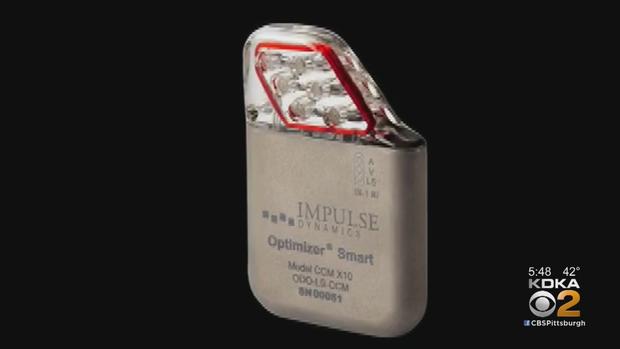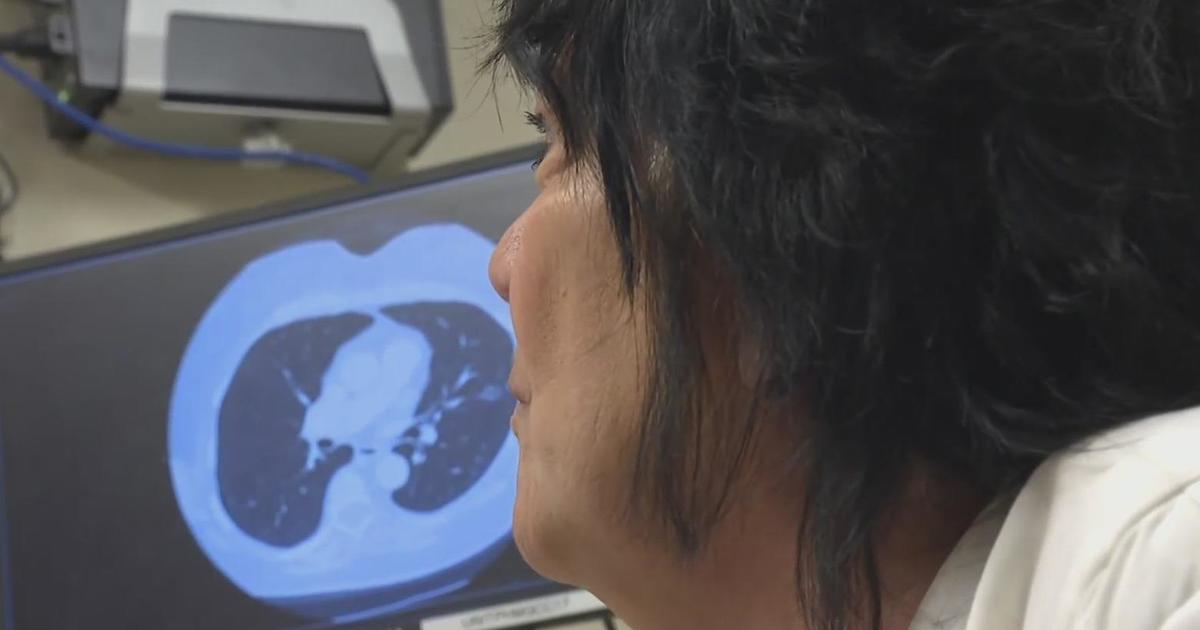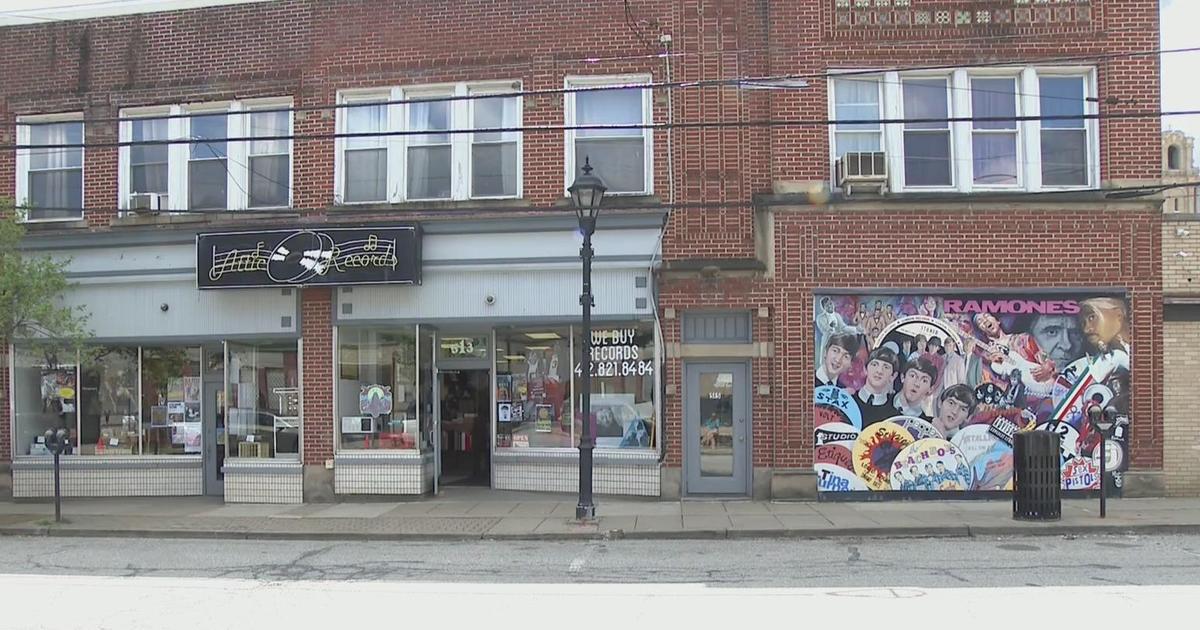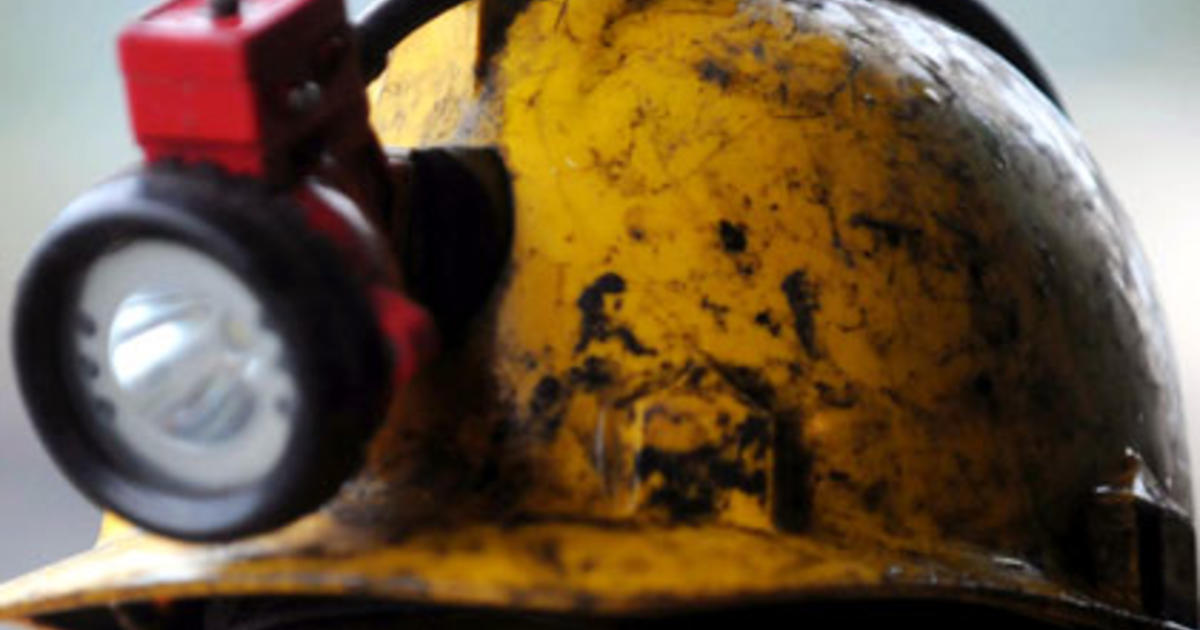Allegheny General Hospital Cardiologists First In Western Pa. To Use New Device To Treat Heart Failure
PITTSBURGH (KDKA) -- Cardiologists at Allegheny General Hospital became the first in our area to implant a new device to treat heart failure.
Joe Talmonti had a heart attack and was living with heart failure.
"If I walk a block, or two, I get severely winded. I was always tired," Talmonti said.
Heart failure affects millions of Americans and comes in a variety of forms.
"Our job is to try to make people live longer and stay out of the hospital and deal with the symptoms that come with heart failure," says Dr. Matthew Lander, a cardiologist at Allegheny Health Network.
Early on, that's done with medications. But as the condition worsens, people may need a heart pump or transplant. As an in-between step for people with poorly pumping hearts, now there's the Optimizer Smart Device, FDA approved in 2019.
"We're talking about patients that may be just getting short of breath walking up a flight of stairs or lifting a laundry basket," Dr. Lander said.
It goes in just like a pacemaker. The wires go from the generator pack in front of the shoulder, down a main vein and to the heart. The ends of the wires screw into the thick heart muscle to stay in place.
"It actually waits for normal heartbeats to come and then it paces right after the heartbeat," said Allegheny Health Network cardiologist Dr. George Shaw. "But it helps the heartbeat stronger. It helps the heart function improve."
The doctors put it under x-ray guidance. The wires have to be placed in a precise position, otherwise, the patient will feel the electrical stimulation. It could make the chest muscles contract, for instance.
The battery is recharged for one hour weekly by a pack that sits over the device, similar to a watch charger. This eliminates the need to change out the battery with future operations, reducing the risk of infection.
In studies, the device did not decrease death but increased other important measures, usually within days to weeks.
"They feel better. It gives them a quality of life back," said Dr. Shaw.
Also, the heart muscle cells themselves improve over time.
"I can climb those with no problem," Talmonti said. "I got more energy than I had before."
AHN has done three cases and Talmonti was one of them. He hopes his heart function shows improvement on his next echocardiogram in February.




